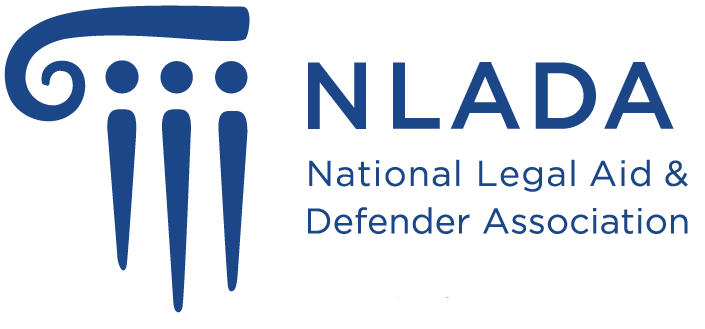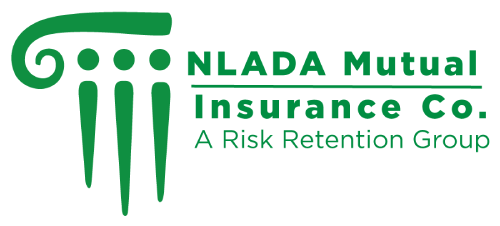Civil Council
The Civil Council's primary objective is to develop programs and policies that support NLADA members. Its main duties include:
- Initiating policy and programs, subject to board approval, relating to the provision of civil legal services
- Reviewing all matters of interest to legal services organizations
- Procuring a budget
- Determining the Civil Division's program
- Issuing policy statements
- Participating as Amicus Curiae on civil legal services related issues in the name of NLADA
- Engaging in appropriate activities in support of legal services organizations
Civil Council members are generally elected on a regional basis, and include management, staff and clients from legal aid programs nationwide. Persons who are elected or appointed to the Civil Council must maintain current individual membership in the Association throughout their terms on the Civil Council.
Click Here for Civil Council Materials
Members
- Clarissa Gaff, Chairperson
East St. Louis, IL - Sam Abel-Palmer
Burlington, VT - Diego Cartagena
Los Angeles, CA - Stephanie Hudson,
Oklahoma City, OK - Jessica Jewell
Modesto, CA - Alicia M. Johnson
Kansas City, MO - Kara Moberg
Kalamazoo, MI - Christina Sanders
Nashville, TN - Sharon Sergent
Phoenix, AZ - Suzanne Small
Boston, MA - DarKenya Waller
Nashville, TN
Civil Council Committees
These committees advance the objectives and help fulfill the duties of the Civil Council, especially by making recommendations to the group on specific areas.
- Executive Committee
The Executive Committee consists of the chair and vice chair of the Civil Council and the chairs of the standing committees. On issues of a time-sensitive nature between meetings, the Executive Committee is charged with the authority to act on behalf of the entire Council between meetings. - Leadership and Diversity Committee
This committee makes recommendations on leadership and diversity issues, such as supporting and developing minority leadership in legal services programs, developing new leadership in legal services programs, involving non-directors in legal services community leadership roles and assuring that diverse staff are recruited and retained throughout the legal services community. Projects include developing a series of training events that help leaders address issues currently facing legal services programs, including issues that arise as programs undergo internal changes. - Program Enhancement Committee
The Program Enhancement Committee makes recommendations on a wide array of issues designed to enhance and improve the quality of legal aid delivery at the advocate, program, state, and national levels. - Recruitment and Retention Committee
The Recruitment and Retention Committee makes recommendations regarding loan repayment assistance programs and other policies designed to improve the ability of legal aid programs to recruit and retain diverse, high-quality staff. - Regulations and Restrictions Committee
The Regulations and Restrictions Committee makes recommendations on policy and regulatory issues related to the Legal Services Corporation (LSC). It has developed and presented recommendations to the LSC regarding policies such as LSC's Case Service Reporting system and has analyzed the LSC Property Acquisition and Management Manual, as well as proposed changes in various LSC regulations. - Resources Committee
This committee makes recommendations on funding and funding-related policy and regulatory issues affecting civil legal services to the poor. The Resources Committee develops and presents funding requests to the LSC board and Congress for LSC appropriations, and it develops policy recommendations to guide LSC in implementing its funding priorities. The committee also develops policy recommendations relating to non-LSC federal sources of funding, IOLTA resources, and other major sources of support for civil legal aid.
Civil Sections
NLADA sections comprise people within a specialized legal area whose common interest is to improve the quality of services rendered to their clients, develop the specialized skills of the group, enhance communications and information sharing, and strengthen advocacy and client communities. Civil sections include:
- Farmworker Law
The Farmworkers Law Section supports the efforts of migrant farmworker advocates and legal services programs serving seasonal farmworkers. It seeks to increase awareness of legal problems and the rights of migrant and seasonal farmworkers and to advance the cause of justice for migrant and seasonal farmworkers. Working closely with the Farmworker Project Group, the section provides technical assistance to migrant farmworker advocates and legal services programs, meets at the NLADA Annual Conference, and sponsors a biennial training conference for migrant advocates from across the country. - Latino Advocates
The Latino Advocates Section focuses on national legal and regulatory issues that affect low-income Latinos, including the intersection of race, ethnicity, and poverty. It also addresses substantive law issues of critical importance to Latino communities, such as immigration, education, and labor; it also offers support to Latino staff through networking, peer mentoring, training, and other appropriate mechanisms. - Native American Law
The Native American Section focuses on the unique cultural problems affecting the delivery of legal services to Native American Indians. The section, working closely with the National Association of Indian Legal Services (NAILS), develops systems to provide effective civil and criminal representation to Native Americans living on and off reservations. The section provides technical assistance to offices that deliver legal services to Native Americans. - Technology
The Technology Section aims to serve the national legal services community on both the civil and defender sides and the established network of programs by providing leadership and knowledge regarding the use of technology to foster provision of quality legal services. It provides a forum within NLADA for development of a critical perspective regarding technology issues and supports efforts to bridge the "digital divide" and ensure that our client community is not further marginalized by lack of access to technology. The section also provides a voice to Congress and the Legal Services Corporation regarding technology issues and addresses issues of training, funding, and support for technology within NLADA, and within the legal services community.


